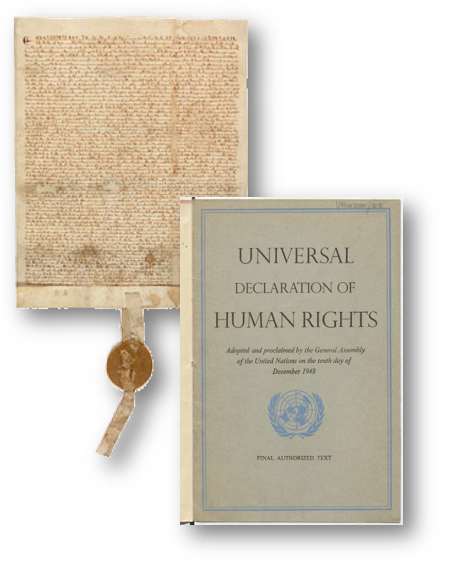On June 15, 1215, the Magna Carta was signed at Runnymede meadow in Surrey, England. View our digital exhibit to learn more about this historic document and its role in shaping our democracy.
Many of the fundamental values we cherish, including liberty, equality, and freedom from tyranny, are direct descendants of the rights established by the Magna Carta more than 800 years ago. These ideals are embodied in our nation's founding documents and embraced by people around the world, even in countries whose governments deny any such protections to their citizens.
Following World War II and the atrocities it spawned, an effort unfolded in the United Nations to codify the inalienable rights of people everywhere. The Human Rights Commission was established in 1946 as a standing body of the UN to draft the defining document. Two years later, on December 10, 1948, the Universal Declaration of Human Rights (UDHR) was adopted. Nearly every country in the world accepted the 30 articles that comprise the UDHR and integrated them into their bodies of law. The UDHR, which some have described as the Magna Carta of the modern age, remains a powerful instrument today, and its impact continues to be felt all over the world.


